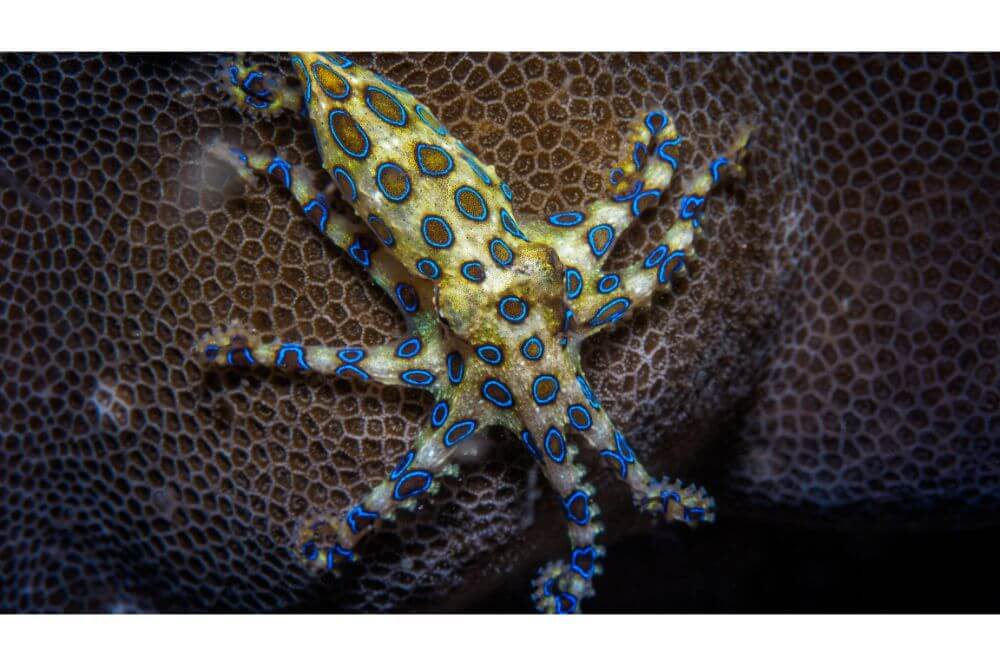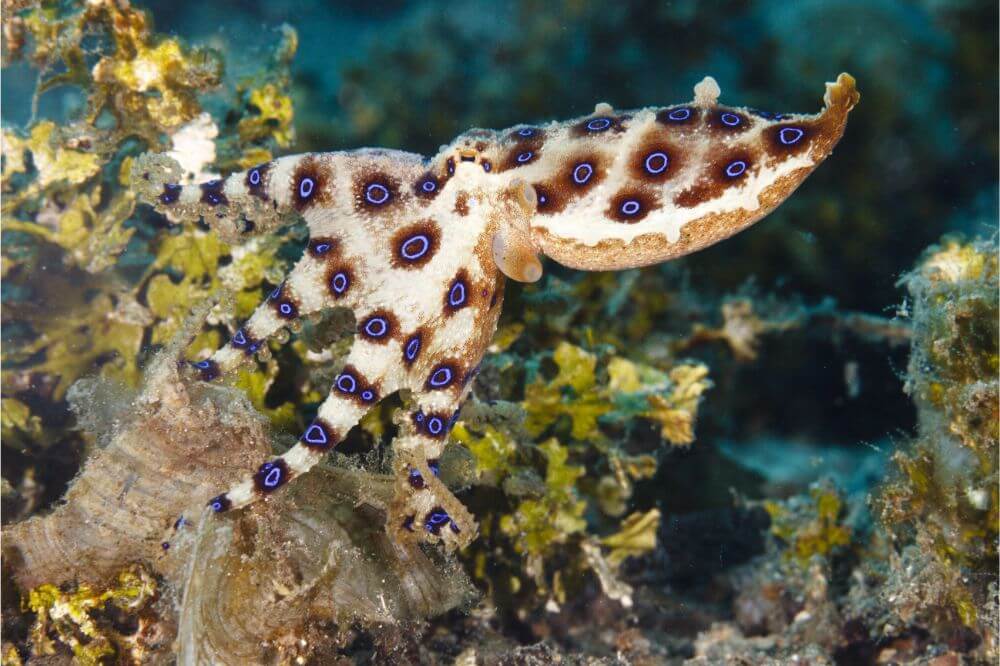If you are a scuba diver, one of the most beautiful marine creatures to see is the blue-ringed octopus.
However, it is also one of the deadliest creatures and mandates extreme caution when you encounter one.
In the octopus family, they are some of the most brightly colored, not to mention that they are extremely intelligent.
Did you know that various octopi species are known for being great problem solvers? Either way, these beautiful and dangerous creatures are a sight to behold. Let’s take a closer look.
Contents
Blue-Ringed Octopus: The Basics
The blue-ringed octopus is one of the most popular octopi species in the whole world.
There are four types of blue-ringed octopus, all from the same family: the greater and southern blue-ringed octopus, the blue-lined octopus, and Hapalochlaena nierstraszi (only two have ever been seen and documented).
The blue-ringed octopus is a very private and frightful creature that spends most of its time in tight crevices and holes, hiding from other animals.
However, like other types of octopi, the blue-ringed octopus can change colors and camouflage itself to blend into the environment around it.
As you can guess, this creature is covered in blue rings.
Including their tentacles, a blue-ringed octopus will grow to between 12 and 20 centimeters or about 5 to 8 inches.
The most important thing to know about the blue-ringed octopus is that it is a venomous animal, and in fact, is considered one of the most lethal venomous animals in the world.
Is the Blue-Ringed Octopus Dangerous?
As noted above, the blue-ringed octopus is one of the most poisonous, venomous, and deadliest creatures in the world.
So, if you ask us whether they are dangerous, the answer is a resounding yes – very much so.
The poison of a blue-ringed octopus is so toxic that it takes mere minutes for a person to die, and this is the case even for very healthy human beings.
However, it is interesting to note that a blue-ringed octopus bite is virtually painless, with many people not even knowing that they have been bitten until it is too late.
The venom of a blue-ringed octopus will cause respiratory depression and paralysis.
Then, more or less, all your organs just stop working, generally leading to suffocation.
There are some cases where people have survived a blue-ringed octopus bite by receiving immediate medical attention.
Still, the reality is that the vast majority of blue-ringed octopus bites are fatal.
One single blue-ringed octopus carries enough venom in its system to kill 26 full-grown human males!
With all of that being said, blue-ringed octopuses do not like people, and they are generally not aggressive. Plus, it is likely to just swim away and hide and not attack you.

Where to See Blue-Ringed Octopus
The blue-ringed octopus is commonly found in the Indo-Pacific region of the world.
However, you may find these incredible yet deadly creatures in the Pacific and Indian oceans, from Japan down to Australia.
Generally speaking, you are most likely to find a blue-ringed octopus in a tide pool, by a coral reef, or near a reef or tide pool.
However, these creatures inhabit depths down to 50 meters, but they are adept at hiding, so actually seeing one while scuba diving will be quite a challenge.
Best Time to See Blue-Ringed Octopus
If you plan on scuba diving and seeing this very deadly sea creature, the best time to do so is during the night.
The blue-ringed octopus is nocturnal, and during the daytime, it generally hides out of sight.
For this reason, very few scuba divers ever see these little creatures.
Tips for Diving with Blue-Ringed Octopus
Do not go near or touch a blue-ringed octopus. If it bites you, chances are that you will die.
Don’t make the mistake of thinking that a wet suit or rubber gloves will protect you from the bite of a blue-ringed octopus.
Their beaks are solid and can easily penetrate most such materials.
Wrapping Up
The bottom line is that while seeing a blue-ringed octopus is worth it, you need to exercise the utmost care around these beautiful but deadly marine creatures.





